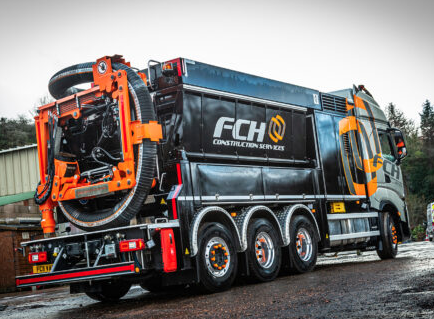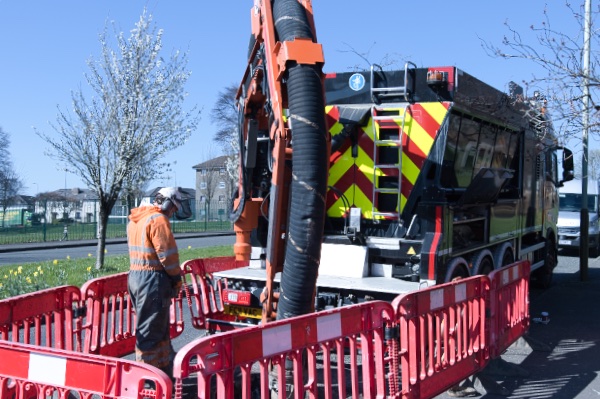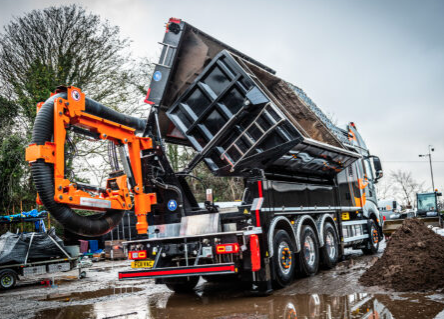FCH Construction currently owns and operates within its growing fleet, a range of dry and wet suction excavation units. The suction units are a vital part of FCHs brand to help continuously promote its environmental principles, carbon footprint reduction and an overall safer, more efficient and more effective way to carrying out excavations for FCH, the client and the public.

By having these units onboard the fleet, it allows FCH to provide a function to its clients that is ideal for projects where traditional excavation methods pose a risk to existing services or where material needs to be removed quickly and efficiently with minimal disruption.
With Green Construction now playing a big part in society, FCH is helping to reduce the scrutiny the industry fights in relation to the impacts felt on the environment through the construction process. Globally the industry generates 35% of energy related to C02 emissions and with the construction leadership council setting looking at options to reduce carbon emissions - the suction excavator is the more applicable method of excavations.
FCH operate units ranging in size from 4 cubic meters to 8 cubic meters, with various vacuum hose diameters . These systems are capable of reaching depths of up to 30 metres and distances of up to 100 metres, making them suitable for even the most challenging locations.
Our dry suction truck is particularly effective for removing large volumes of soil quickly. FCH have the ability to tip dry excavated material on-site for reuse, reducing both waste and transport costs. All vacuum trucks in our fleet are equipped with high-pressure, high-flow water systems, air and power tooling, enabling them to handle a wide range of industrial and civil applications. Whether for planned works or rapid emergency response, our team is trained, accredited, and ready to deploy with the right equipment for the job.

Uses as to why a Suction Excavator is more efficient and more effective for your needs
